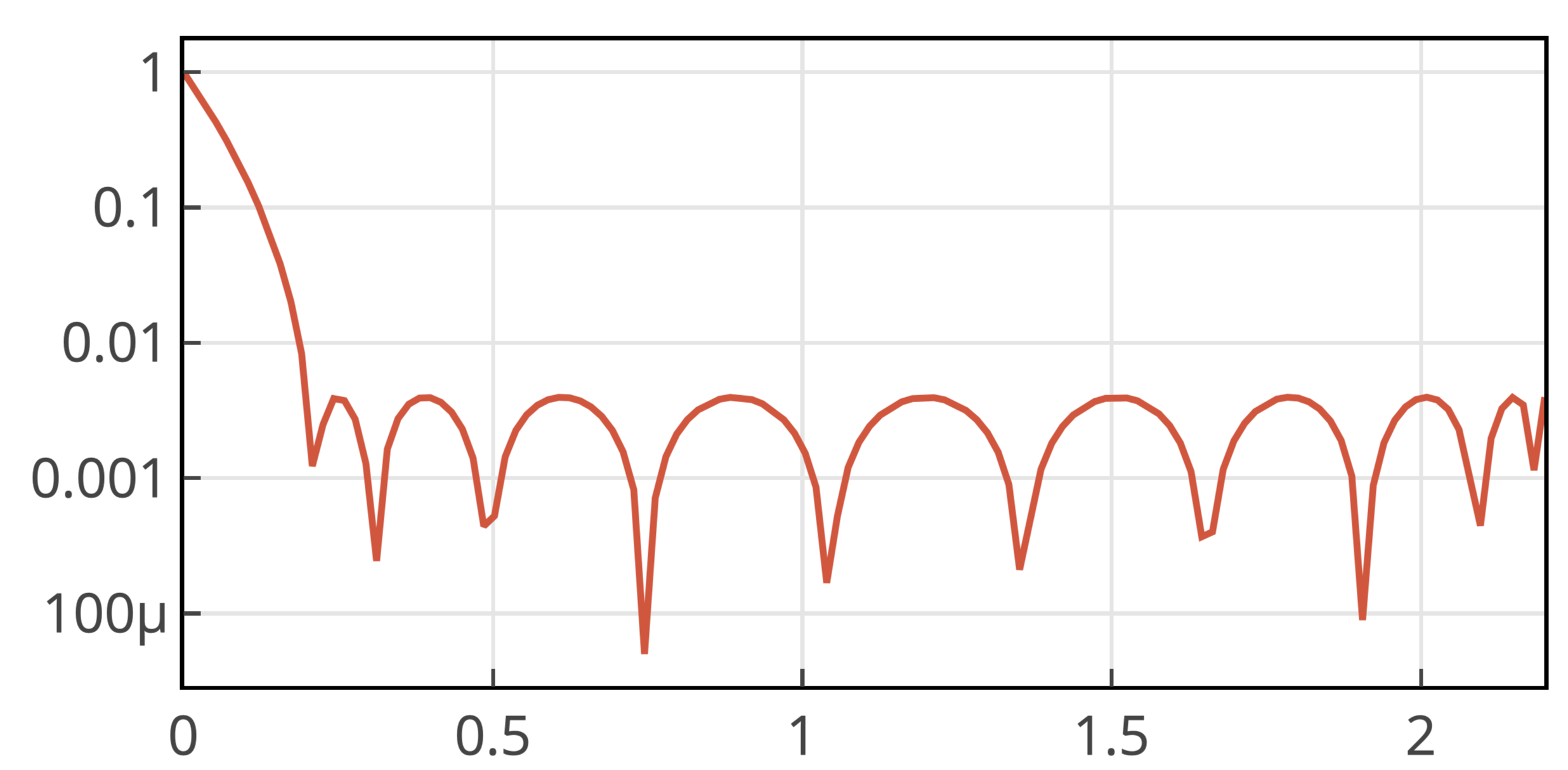If we know an interval containing the eigenvalues, it is possible to design a scheme with near optimal convergence.
Let’s start with a splitting-style approach:
This implies that
This is the residual iteration form.
Let’s avoid repeating in all the equations and let’s do the substitution:
Then the iteration is:
This substitution can also be interpreted as solving instead of .
Let’s apply our idea of relaxation:
Let’s use the equality , and subtract:
We get:
where is a polynomial of order with .
Note: there is a variant where we use
Then:
In both cases: with
The polynomial needs to be designed to provide maximum error reduction. Estimating requires having an estimate of an interval containing the eigenvalues of
Assume that the eigenvalues of are in the interval .
Then define the following polynomial:
where is a Chebyshev polynomial. Here we also used a shift-and-scale transformation of :
We have . Moreover when :
So and
So as before and for
We can prove the following bound:
We can expect a rapid convergence. But this algorithm requires a good estimation of and .
We can derive a more precise bound for
We have for :
where
Denote by
Then using :
Moreover:
Finally:
with
This expression can be simplified. Assume that the interval containing the eigenvalues is small: and . Then and . We get:
The convergence is very fast. The figure below shows the polynomial with and .
